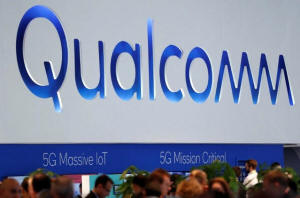|
China says it is still open to talks on
scrapped Qualcomm-NXP takeover
 Send a link to a friend
Send a link to a friend
 [July 27, 2018]
By Adam Jourdan [July 27, 2018]
By Adam Jourdan
SHANGHAI (Reuters) - China's market
regulator said it still hoped to find a solution to antitrust concerns
that doomed Qualcomm Inc's $44 billion takeover of NXP Semiconductors,
after finding that proposals to address the issue had fallen short.
U.S.-based Qualcomm abandoned on Thursday what would have been the
world's biggest ever semiconductor sector takeover after a deadline the
companies set passed without the deal winning China's approval.
China's State Administration for Market Regulation (SAMR) said in a
statement on Friday that proposals put forth by the firms to resolve
Chinese antitrust concerns were insufficient, but it hoped to continue
communicating with Qualcomm.
The Chinese move likely comes too late for a resurrection of the deal,
which had become embroiled in a political spat between Washington and
Beijing. With the deal called off, the two companies have announced
major share buybacks and Qualcomm has already paid NXP a $2 billion
break fee.
"Coming a day after the deadline, my guess is the SAMR statement is
meant to counter perceptions the deal approval process was politicized,
not to revive it," said Andrew Gilholm, director of analysis for China
and North Asia at consultancy Control Risks.

"Of course, this conflicts with the view among many people following the
deal that the U.S.-China situation had become the main obstacle, not the
competition implications."
The collapse of the deal could aggravate tensions between Washington and
Beijing amid a whipsawing trade standoff that has chilled relations
between the world's top two economies.
Qualcomm, the world's biggest smartphone-chip maker, had said on
Wednesday it would drop the bid for NXP, unless a last minute reprieve
from China was received. There was no word from SAMR, the antitrust
regulator reviewing the deal, as the deadline for the deal to expire
passed.
The Chinese regulator said on Friday that it was open to continuing
negotiations over approving the deal. It added its current review period
would expire on Aug. 15, with an extended review deadline of Oct. 14.
"The results of our evaluation showed that Qualcomm's latest plan could
not resolve competition issues," the regulator said, adding it had
notified the chipmaker of this decision.
[to top of second column]
|

The logo of Qualcomm is seen during the Mobile World Congress in
Barcelona, Spain February 27, 2018. REUTERS/Yves Herman/File Photo

"We hope to continue to communicate with Qualcomm and that we can
find a suitable solution to resolve the issues within the review
period."
When asked for a comment on SAMR's statement, a Qualcomm spokeswoman
pointed to the announcement of the deal's termination. NXP could not
be immediately reached for comment.
CAUGHT UP IN TRADE WAR?
China's commerce ministry said on Thursday the Qualcomm case was
about anti-monopoly issues, and not related to China-U.S. trade
frictions.
Qualcomm, however, viewed it differently.
Qualcomm Chief Executive Steven Mollenkopf told CNBC in an interview
on Thursday the firm had been caught up in a trade war, while U.S.
Treasury Secretary Steven Mnuchin said it was disappointing and
called for U.S. firms to be treated fairly.
The Chinese market regulator added in its statement that the country
would treat all companies fairly and that China was open to foreign
firms investing and doing business in the country.
Gilholm of Control Risks said the big question for U.S. firms and
politicians would be whether the issue would hit other deals
involving American firms.
"The United States will certainly view it as political, no question
about that," he said. "What we don't know yet is if it's a one-off
or not. I guess that's the next question."
(Reporting by Adam Jourdan; Additional reporting by Kanishka Singh
in Bengaluru; Editing by Muralikumar Anantharaman)
[© 2018 Thomson Reuters. All rights
reserved.]
Copyright 2018 Reuters. All rights reserved. This material may not be published,
broadcast, rewritten or redistributed.
Thompson Reuters is solely responsible for this content.
 |